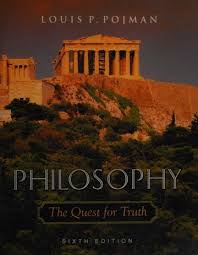Philosophy has always been a tool for seeking knowledge and meaning in the world around us. From ancient thinkers to modern philosophers, humanity has constantly grappled with fundamental questions about existence, morality, knowledge, and the universe. Exploring philosophy is more than just a study of ideas—it is a journey to understand who we are, why we are here, and how we relate to the world and others.
In this article, we will delve into the essence of philosophy, its historical development, and its relevance in the modern world. Join us as we explore how philosophy continues to shape our understanding of life, offering answers, provoking thought, and ultimately helping us navigate the complexities of existence.
What is Philosophy?
At its core, philosophy is the study of fundamental questions related to existence, knowledge, values, reason, and the mind. Derived from the Greek word “philosophia,” meaning “love of wisdom,” philosophy seeks to understand the underlying principles that govern reality and human behavior. Philosophers engage with abstract concepts and seek answers to questions such as:
- What is the nature of reality?
- What can we truly know?
- What is the meaning of life?
- How should we live and act in the world?
Philosophy can be divided into several branches, each exploring different areas of human inquiry:
- Metaphysics: The study of the nature of reality and existence.
- Epistemology: The study of knowledge, belief, and justification.
- Ethics: The study of morality and principles of right and wrong.
- Logic: The study of reasoning and argumentation.
- Aesthetics: The study of beauty, art, and taste.
The History of Philosophy: Key Philosophical Movements
Philosophy has evolved over thousands of years, with many different schools of thought shaping the way we think about the world today. Let’s look at some of the key philosophical movements that have influenced our understanding of knowledge and meaning:
1. Ancient Greek Philosophy
The roots of Western philosophy can be traced back to ancient Greece, where thinkers like Socrates, Plato, and Aristotle laid the foundations for future philosophical inquiry. They questioned everything—from the nature of knowledge and reality to ethics and the ideal state.
- Socrates is famous for his method of questioning, known as the Socratic method, which sought to uncover truth through dialogue and critical thinking.
- Plato, a student of Socrates, explored ideas about the nature of reality, proposing the theory of the Forms—an ideal, non-material world that is the true reality, while the physical world is just a shadow.
- Aristotle, Plato’s student, contributed significantly to logic, ethics, and metaphysics, developing a comprehensive system of thought that remains influential today.
2. Medieval Philosophy
During the Middle Ages, philosophers like Augustine of Hippo and Thomas Aquinas sought to reconcile faith and reason. Medieval philosophy was deeply influenced by religious beliefs, particularly Christianity, and focused on questions about the existence of God, the nature of the soul, and the moral life.
3. The Renaissance and Enlightenment
The Renaissance and Enlightenment periods marked a turning point in philosophical thought, with a renewed focus on human reason, individualism, and scientific inquiry. Thinkers like René Descartes, John Locke, and Immanuel Kant emphasized reason and empirical evidence in understanding the world.
- Descartes famously declared, “Cogito, ergo sum” (“I think, therefore I am”), putting emphasis on the thinking subject as the foundation of knowledge.
- Locke advanced the idea of the mind as a blank slate (tabula rasa), with knowledge derived from sensory experience.
- Kant explored the limitations of human knowledge, asking how we can understand the world given the constraints of our senses and cognition.
4. Modern and Contemporary Philosophy
In the 19th and 20th centuries, philosophy continued to evolve with the advent of new philosophical movements like existentialism, analytical philosophy, and pragmatism.
- Existentialists like Jean-Paul Sartre and Simone de Beauvoir focused on the individual’s search for meaning in an indifferent and often absurd universe.
- Pragmatists like William James and John Dewey emphasized practical consequences and experiences as the basis for truth and knowledge.
The Role of Philosophy Today
In the modern world, philosophy continues to play a crucial role in shaping our understanding of knowledge, ethics, politics, and the nature of reality. Here are some ways philosophy impacts contemporary life:
1. Philosophy and Ethics: The Search for Morality
Ethics is one of the most vital branches of philosophy, focusing on questions about what is right and wrong, and how we should live. In an increasingly complex world, ethical philosophy helps us navigate moral dilemmas and make decisions in areas like technology, medicine, and politics.
- Example: Ethical debates about artificial intelligence (AI) and machine learning are central to modern philosophy. Questions such as, “Can machines make moral decisions?” and “What rights do robots have?” challenge our traditional views of ethics and humanity.
2. Philosophy and Politics: Shaping Governance and Rights
Political philosophy has long been concerned with the nature of justice, power, and the ideal state. Philosophers like John Rawls and Karl Marx have influenced ideas about democracy, equality, and social justice, impacting political movements and government structures around the world.
- Example: Discussions on human rights and justice are rooted in philosophical ideas about equality, freedom, and fairness, with thinkers like John Locke advocating for individual rights as the foundation of modern democratic societies.
3. Philosophy and Technology: Understanding the Digital Age
As technology rapidly advances, philosophical questions about the nature of consciousness, artificial intelligence, and the ethics of technology become increasingly important. Philosophers are now grappling with the implications of technologies like AI, virtual reality, and genetic engineering.
- Example: Philosophers debate the ethical consequences of AI, with some arguing that AI should be treated as a tool that benefits humanity, while others warn against its potential risks, such as surveillance and job displacement.
Why Philosophy Matters: The Quest for Knowledge and Meaning
Philosophy remains relevant in the 21st century because it helps us explore the fundamental questions of human existence. By engaging with philosophy, we challenge our assumptions, refine our reasoning, and confront the complexities of life. Philosophy encourages us to think critically, ask tough questions, and seek meaning in an often chaotic world.
1. Critical Thinking
At its core, philosophy promotes critical thinking—the ability to analyze, question, and evaluate information. In an age of misinformation, philosophical inquiry helps us separate fact from opinion and make more informed decisions.
2. Self-Reflection
Philosophy encourages self-reflection and introspection. By examining our beliefs, values, and assumptions, we can gain a deeper understanding of who we are and how we relate to others.
3. Understanding the Big Picture
Philosophy helps us understand the larger picture of human existence, providing insight into our place in the universe and the meaning of life. It offers a way to explore questions that have no easy answers, encouraging us to continue searching for truth and purpose.
Conclusion
Exploring philosophy is not just an academic exercise—it is a lifelong pursuit of knowledge, meaning, and self-understanding. From the great thinkers of the past to the philosophical questions of today, philosophy continues to challenge us to think deeply about the world and our place within it. By engaging with philosophy, we embark on a journey to better understand ourselves, our societies, and the mysteries of the universe.
SEO Tips:
- Keywords: exploring philosophy, the quest for knowledge, meaning of life, philosophy branches, ethics in philosophy, history of philosophy, contemporary philosophy, Socrates, Plato, Aristotle, existentialism, philosophical questions, political philosophy, modern philosophy.
- Meta Description: Discover the importance of philosophy in the quest for knowledge and meaning. Learn about its branches, historical evolution, and how it continues to shape the modern world today.
- Headings: Use headings like “What is Philosophy?”, “The History of Philosophy,” and “The Role of Philosophy Today” to enhance readability and SEO.




